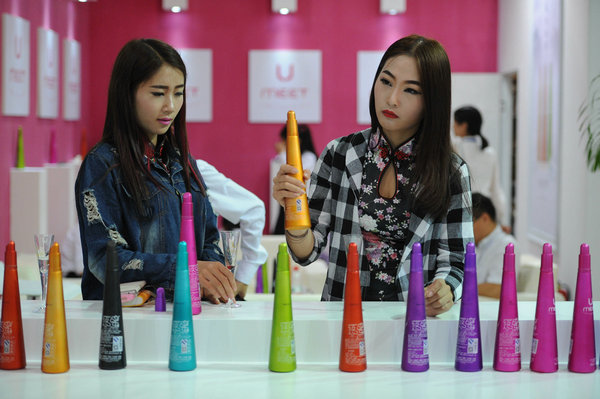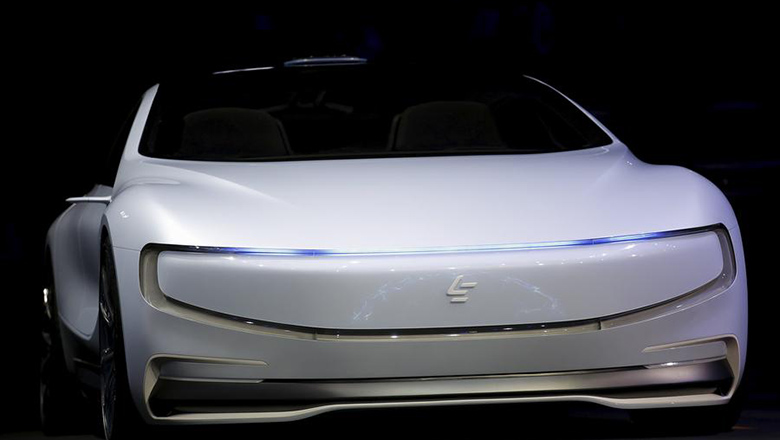Potential winner
Updated: 2016-05-13 10:15
By Mike Peters(China Daily)
|
||||||||
 |
|
The Moutai Group has recently launched UMEET, a new baijiu product, which is aimed at young women.[Photo/ CFP] |
An expert panel says humans have always had a thirst for alcohol, and China's baijiu makers must respond to a new marketplace to take advantage of it. Mike Peters reports from Guizhou province.
The global popularity of Chinese food offers a lesson to the makers of baijiu, China's distinctive white spirit, says former Croatian ambassador to China Ante Simonic.
Speaking at the World Famous Liquor Summit hosted by Moutai Group in Renhuai, Guizhou province on Tuesday, Simonic told a packed auditorium that he loves Chinese food, but sometimes likes it better at home in Europe than here in China.
"That's because in Europe the Chinese food is tailored to my taste," he says.
Chinese and foreign experts at the forum joined the former diplomat, a physician and president of the new World Wine Industry Alliance, in urging baijiu makers to be innovative as they pursue new markets abroad.
Highlighting two US-based baijiu makers that have enjoyed some success in New York and the West Coast, author and baijiu fan Derek Sandhaus says he's convinced the case can be made for the fiery liquor abroad.
"I hope the next case study of success for baijiu in America will be about a company that's in this room," he adds.
Ye Xin, vice-president of the China Wine Writers Association, insists that the potential is great for expanding baijiu's global footprint. Like other speakers, he points to sake, Japan's popular but potent spirit, as a trailblazer in the West that can be a model. Noting that sake is now often an automatic part of meals in Japanese restaurants worldwide, he suggests that a "baijiu cuisine" could be developed, pairing dishes that highlighted and even included the flavor of the spirit.
He also told the assembled distillers and distributors a story: Old Shanghai Restaurant had adjusted its classic recipe for "lion's head", a stewed meatball of pork and fish, before a visit to the city by President Obama. The White House asked for a more health-conscious version with less pork, and the chefs obliged by making the meatballs 75 percent fish.
"Today," Ye says, "the 'Obama lion's head' is one of the restaurant's best sellers."
Health is an issue for young and female drinkers both in China and abroad, and observers like Sandhaus have long pointed to baijiu's high ABV (alcohol by volume), in the 55-percent-plus range, as a deterrent in a changing market. Some brands in the international marketplace have pared the alcohol down to about 45 percent, in line with globally distributed vodka, rum and other liquors widely used in cocktails.
Wang Yancai, president of the China Wine Industry Association, says the country's liquor makers need to promote a drinking culture that promotes consumption in a sensible, healthy way. He and other speakers also made the case for quality and more automated production, participation in wine competitions globally, investing in science, and seeking international opportunities to promote China's wine industry.
Yuan Renguo, chairman of forum host Moutai Group, notes that baijiu first made waves abroad in 1915 at the Panama-Pacific International Exposition in San Francisco.
"A vendor broke a bottle in the exhibition hall and the aroma filled the room," he says, noting that an eager and curious crowd followed their noses. Moutai and Xinghuacun were two distillers who came back from the show with awards of distinction.
"We have to automate and mechanize," says Wang, "but we have to preserve the tradition and craftsmanship as well. Without quality and tradition, we have nothing."
China's liquor industry has struggled in recent years, hit first by an economic slowdown and then by the country's campaign against extravagance and official gift-giving. That's fueled a push to reach new markets abroad, but the challenge of winning foreign drinkers is common throughout the global industry.
Baudouin Havaux, chairman of International Organizing Committee of Concours Mondial de Bruxelles, notes that 40 percent of all wines and spirits are consumed outside the country that produces them. China's distillers have focused on domestic consumption in the past, so there is plenty of room to grow if there's a change in the world view of Chinese wines and spirits, he says.
The forum concluded with a cocktail reception that highlighted baijiu's potential in cocktails, featuring three Western bartenders with an affinity for the spirit.
- Overseas help asked for return of suspects
- Harvard University welcomes first Chinese student speaker at commencement
- Officials provide personal touch in legal disputes
- Wenchuan Earthquake eight years later: never forget
- Students' allegations of poisoning dismissed
- Smoking declines after increase in tobacco tax
- First joint EU-China civil exercise begins in Shanghai
- Uncertainty over EU referendum vote impacts UK economy: Think-tank
- Canadian miner sells world's most expensive rough diamond for record $63 million
- German, Cuban FMs hold talks on bilateral cooperation
- Putin prevails in Sochi all-star ice hockey game
- US guided-missile destroyer visits Tonga

 High-tech gadgets shine at CES Asia in Shanghai
High-tech gadgets shine at CES Asia in Shanghai
 Cannes Film Festival opens amid terror threat
Cannes Film Festival opens amid terror threat
 Supporters of Rousseff clash with police as her removal looms
Supporters of Rousseff clash with police as her removal looms
 Lego opens world's largest store at Shanghai Disney
Lego opens world's largest store at Shanghai Disney
 Exhibition of table setting art held in Beijing
Exhibition of table setting art held in Beijing
 Shanghai Disney Resort starts internal test run
Shanghai Disney Resort starts internal test run
 Top 10 events between Shanghai and Beijing auto shows
Top 10 events between Shanghai and Beijing auto shows
 CPC creates cartoon to show how officials are selected
CPC creates cartoon to show how officials are selected
Most Viewed
Editor's Picks

|

|

|

|

|

|
Today's Top News
Liang avoids jail in shooting death
China's finance minister addresses ratings downgrade
Duke alumni visit Chinese Embassy
Marriott unlikely to top Anbang offer for Starwood: Observers
Chinese biopharma debuts on Nasdaq
What ends Jeb Bush's White House hopes
Investigation for Nicolas's campaign
Will US-ASEAN meeting be good for region?
US Weekly

|

|







